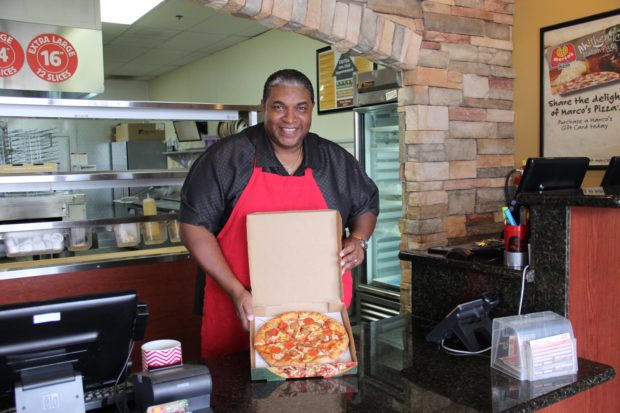[ad_1]
As a franchise adviser, the most-asked question I receive after “what’s the best franchise to buy?” is “where can I get the money” to purchase a franchise. Understanding how to fund a franchise business is critical because it could ultimately determine what business you end up purchasing.
In addition, potential franchisees often find out that there are more options than they thought, and they may be able to purchase a larger territory, multiple territories, or a resale business.
Understanding your funding options isn’t just for the purpose of starting up your franchise. It’s also about cash infusion opportunities down the line when you want to grow the business or have an unplanned event occur that requires emergency funds.
Most African Americans Bootstrap Franchises
The SBA reports that 70% of African Americans who start businesses turn to family or use their own personal funds. And while nearly 19% of white business owners started their business with a business loan from a bank or other financial institution, only 15.2% of black business owners did so. Black and Hispanic business owners are more likely to rely on personal credit cards carrying balances, which is a much more expensive financing option than a traditional bank loan.
There are new programs coming out all the time that investors can take advantage of, and it’s important to learn about those, as well as the changes that occur to existing programs. I sat down with Rodney H. Brown, executive director of Unlimited Financial Funding L.L.C. as he shared some valuable information.
How to Fund a Franchise
What are the most common loans you broker for your clients?
Rodney H. Brown: SBA 7A, SBA 504, CRE conventional loans and Non-SBA working capital loans, equipment loans, and development funding to name a few.
What does a client seeking funding need to qualify?
If purchasing a franchise, they need to be working with an SBA franchise, have a 660 credit score (may accept 620 with explanation), no bankruptcies, and 10%-15% cash down payment of the total loan amount.
Industry experience is not required, however, with hotels most lenders prefer two or more years’ experience or have a management team in place with the experience.
What are some of the franchise brands you have funded for clients?
Marcos Pizza, Five Guys, Subway, and Tropical Smoothie Café.
What advice do you give clients on how much they should borrow?
I advise my clients to take what is needed but at the same time, have access to 20%-25% liquidity because with an SBA loan you will need 10%-15% down but underwriters love to see additional liquidity available in the form of home equity, IRA/401(K), stocks, etc. If you only have 10% to inject into a business and it takes longer than 6-9 months to turn a profit, the business is headed for disaster.
Other than SBA, what funding options are there?
We can provide additional working capital and term loans—conventional loans for those clients that prefer not to take an SBA loan, and we also can assist our clients with programs to calculate any new or existing federal tax benefits and incentives they may not be taking advantage of. We are always trying to add more value for clients to stay ahead and with limited business debt as possible.
When should a candidate start the funding process and how long does it take?
Once a person has identified a franchise or business they feel confident will be a good fit for them, they should begin the funding process ASAP. At Unlimited Financial Funding, once we receive all the personal/business financials from the borrower, we underwrite the file to see how strong it is and if it is strong enough, we submit it to our top 2-3 lenders that we know will give the best terms or provide the most flexibility if needed. Such as lower credit scores, lack of collateral, limited locations for the franchise, etc. Once the file is submitted to the lender, we typically can close within 45-60 days. However, we can usually have an LOI (Letter of Intent) after 72 hours of loan submission.
Are there limits to what the funds can be used for?
They can be used for business acquisitions, partner buyouts, buying commercial real estate for owner-occupied properties (the borrower must occupy 51% of total space), working capital, commercial build-out as well as buying equipment & FF&E (furniture, fixtures, and equipment).
What other key information do potential candidates need to know?
My advice would be to steer clear of the big banks. They have less flexibility and are more focused on bank deposits, savings accounts, CDs, etc. SBA lending has come a long way in the past 5-10 years. It no longer takes 3-6 months to close an SBA, which it still can if you’re working with the Big Banks. In addition, if they are willing to fund the loan, they will require the borrower to move their banking portfolio to that branch and may only fund the loan if you have collateral. The SBA DOES NOT require that you have collateral!
So, if you’re denied a loan for no collateral, that shouldn’t mark the end of your journey. Unlimited Financial Funding works with several non-bank lenders that do not require collateral. However, if you do have a home or other investment properties the lender may have to use that as collateral.
The best funding partners focus on SBA loans ONLY, no bank deposits or bank accounts, simply financing and closing viable loans for the small business community.
Related:
Black Enterprise Contributors Network
[ad_2]
Source link

